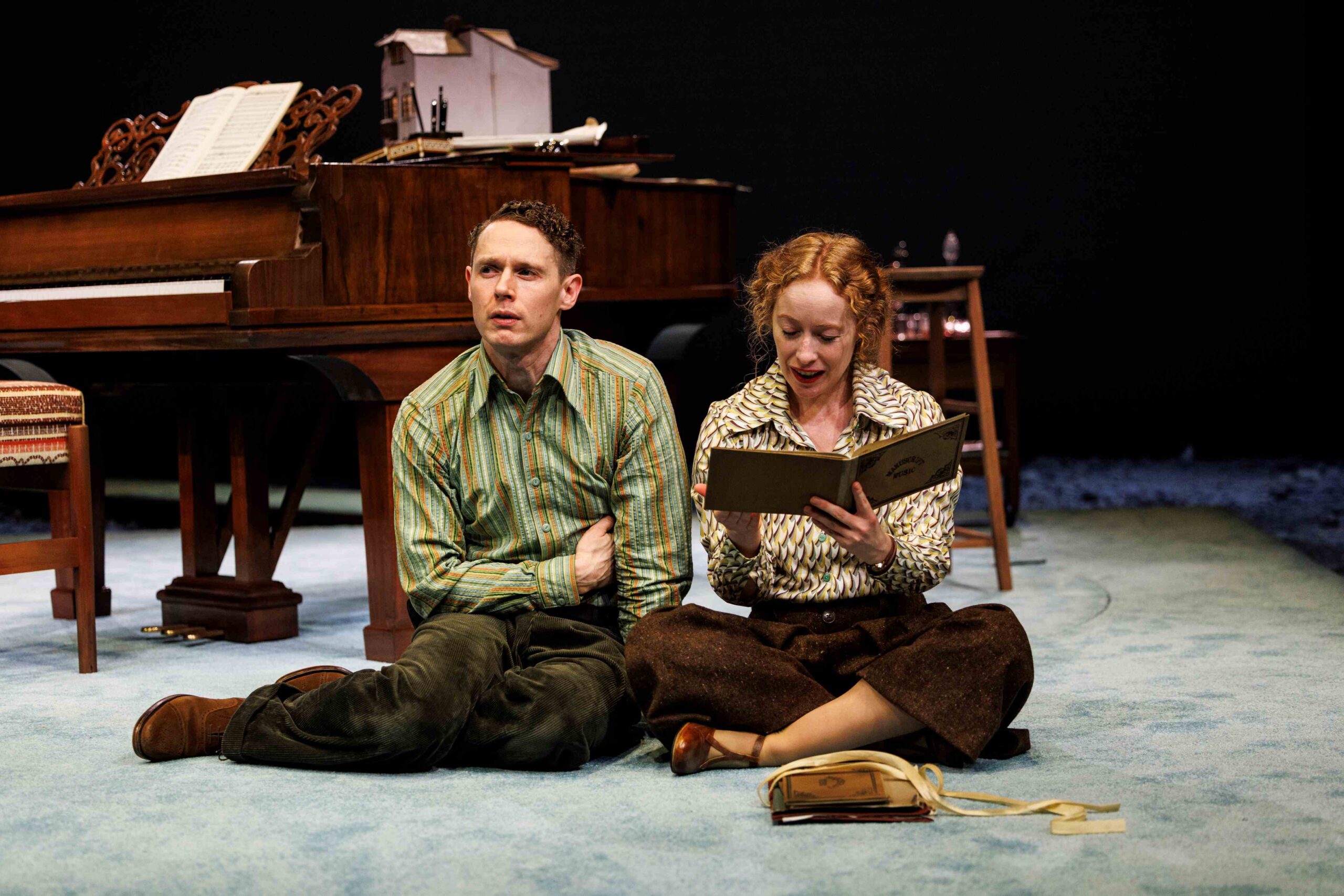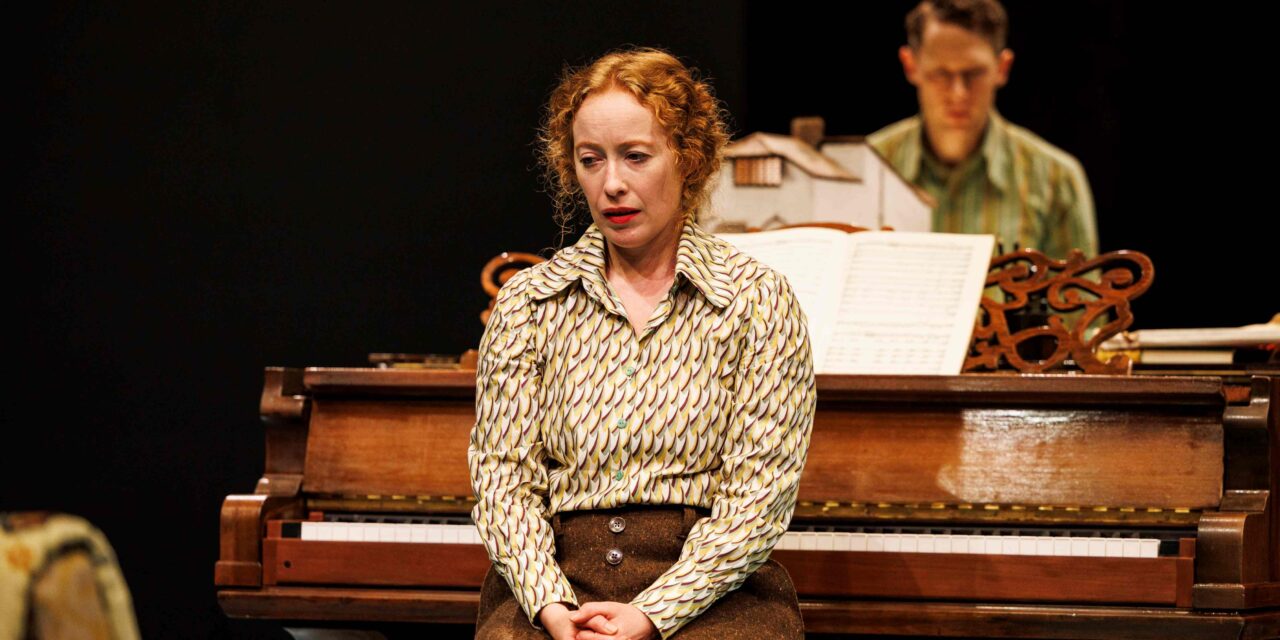
21 February – 6 April
A grand piano dominates the stage. On its lid sits a tiny replica of Benjamin Britten’s seafront home in Aldeburgh. For more than two hours the audience is absorbed into this imagined space, captured by the power of fine writing and performing into the inner and outer worlds of the renowned composer and his charismatic enabler Imogen Holst.
Mark Ravenhill’s two hander was first conceived for radio in 2013. Now reimagined for the stage, it is a fascinating depiction of two brilliant and sensitive musical powerhouses. Each offer something to the other, each struggles and suffers, and the clash of talents and temperaments is both heartening and painful to witness.
Writing of this calibre needs skilled performers and it has found them in Samuel Barnett and Victoria Yeates. Both are making their RSC debuts, both capture the movements and attributes of their real life characters so completely there is no sense of separation from the actors and the parts they play.
It is 1953. Britten is 39 years old and has been commissioned to write an opera for the coronation of the new queen, Elizabeth II. He has chosen Gloriana the story of the aging Elizabeth I and her doomed love affair with the Earl of Essex. With little time to spare, his producer has persuaded him to employ Holst, conductor and composer in her own right, as a musical assistant. Holst is well organised , energetic, level-headed and far- sighted. By contrast Britten is introvert, anxious, combining deep self- doubt with sudden bursts of creativity and confidence. Uncertain about her involvement at first, Britten comes to rely on her both practically and emotionally.
Holst is single, by choice she claims, and appears the more resilient of the two. Yet her resilience is fragile. And Victoria Yeates gives a powerful rendition of this multi-talented woman, her moments of loneliness contrasting with her vitality and exuberance, wonderfully expressed though sudden outbursts of extravagant dance.
It is a particular challenge to write about real people. Ravenhill clearly knows his material and has fashioned a well-structured drama of a relationship that moves from hesitant beginnings through attraction and conflict to resolution. The writing feels seamless and natural, with several unexpected dramatic twists. It also gives delicious inside glimpses into the arts world of the 1950s.
Britten’s cruelty is as well documented as his generosity, and both are demonstrated here. Although committed to a long-term relationship with singer Peter Pears, he feels the need to warn Holst of his tendency to draw people in and spit them out. She vows she will not be a victim. Eventually she is proved to be his match, but it is a hard battle for both of them.
Despite its origins in radio, the stage play, directed by Erica Whyman is intensely visual, hinting at the connections between music, movement, and emotion, not simply through dance but through gesture and attitude.
Using rippling chords from Gloriana itself, composer Conor Mitchell, has created an effective, atmospheric score. Period costumes, designed by Soutra Gilmour are pitch perfect. Taken together, set, sound and lighting create a mood of uncluttered simplicity.
The best theatre leaves you coming away thinking and many members of the audience will come away from Ben and Imo thinking about Imogen Holst. Overshadowed first by her father Gustav, and then the men she worked with, her contribution to music, particularly amateur music and community music, has been incalculable and enduring.
★★★★★ Ros Carne 1st March 2024
Photo credit: Ellie Kurttz c RSC


